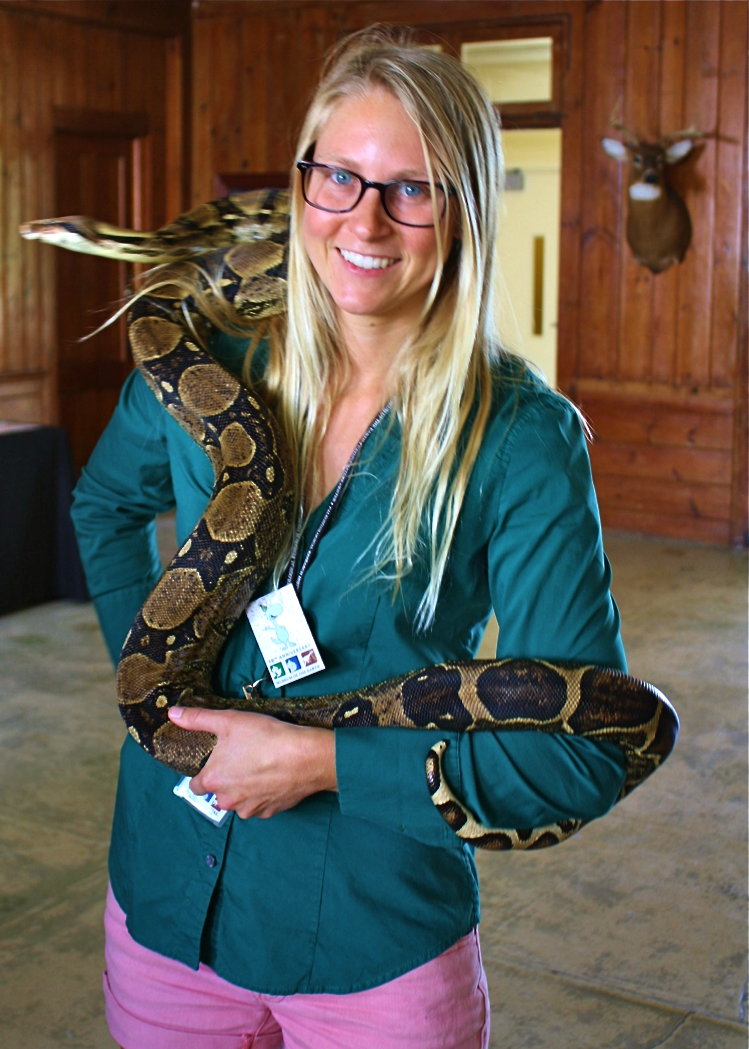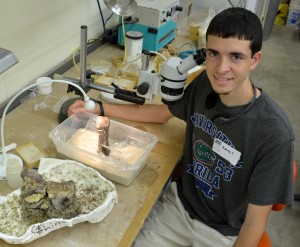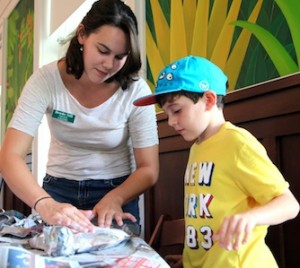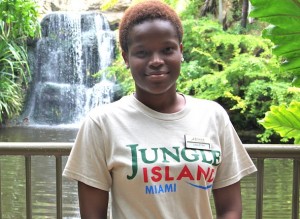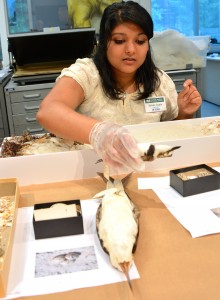‘Wearing’ a boa constrictor, fist bumping a sloth make UFTeach summer internships memorable
Brett Walker spent a summer morning wearing a boa constrictor as — well, as a boa. Dina Zinni, an aspiring astronomer from Jupiter (no, really, it’s true), spent her afternoons gazing at indoor stars. Not to be outdone, Ashleigh Tucker fist bumped a giant ground sloth as she wandered back in time.
The three University of Florida seniors, along with 12 fellow students enrolled in the UFTeach program, discovered the power of informal STEM learning through paid summer internships as Noyce Scholars.
Thanks to a $1.2 million grant awarded last year by the National Science Foundation, the five-year Noyce Scholars program allows UF’s colleges of Education and Liberal Arts and Sciences to offer hands-on training opportunities to help recruit and prepare top science and math majors for teaching careers in the critical shortage areas of STEM, an acronym for science, technology, engineering and math.
Walker, who will graduate with a bachelor’s in geological sciences by summer’s end, says she is grateful for her UFTeach education, which has taken her to Iceland to study volcanoes; to the Caribbean to dive along the deep fore reefs of the Bahamas; to New Mexico, where she crawled through 70-mile-an-hour winds on the peak of the state’s highest mountain; and to the Paleontological Research Institution at Cornell University in Ithaca, N.Y., for this summer’s internship.
“My main job was teaching children about the treasures in their terrain and the excitement of Earth’s wild history,” Walker said. “But I also watched hot lava ooze toward me as part of the Syracuse [N.Y.] Lava Project.”
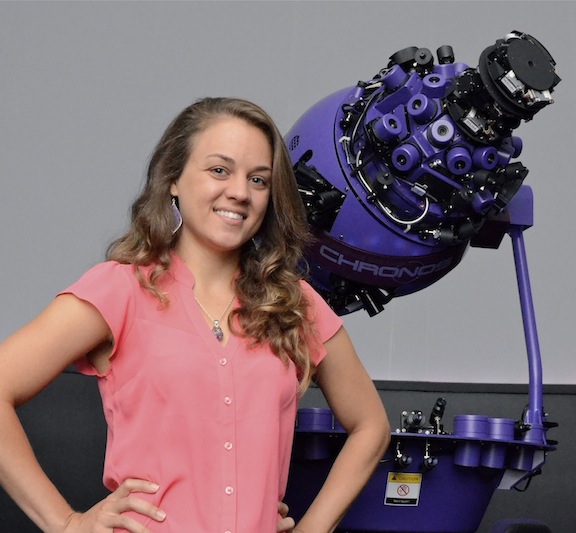
Dina Zinni stands next to Kika Silva Pla Planetarium’s Chronos Star Projector that is used for celestial shows and music performances.
She also helped out in other areas, and gladly agreed to give a short-notice presentation on the boa constrictor to a group of visitors.
“Holding a snake longer than I am tall and teaching children about it for 30 minutes was totally unexpected,” Walker said with a laugh. “Every day I woke up and did something new and exciting, so yeah, I’d say my internship was one of the greatest experiences of my life.”
Zinni, who plans to graduate in the spring with a bachelor’s in astronomy, spent her internship talking to visitors who came to watch shows about our solar system at the Kika Silva Pla Planetarium at Santa Fe College in Gainesville.
“My favorite part was working with kids,” said Zinni, who grew up in Jupiter, Fla. “They’re all so curious and they ask great questions. I’d love to end up running my own planetarium someday.”
Tucker, one of seven interns who worked at UF’s Florida Museum of Natural History in Gainesville, said she gained a fresh perspective on how to teach math to different age groups after spending time at the museum’s numerous exhibits, including “Florida Fossils: Evolution of Life & Land,” where she high-fived and fist bumped a miniature replica of a giant ground sloth, circa 2 million B.C.
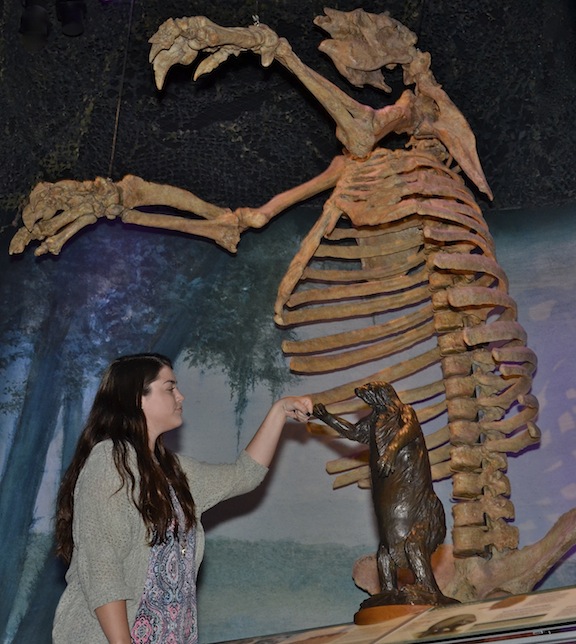
Ashleigh Tucker fist bumps a replica of a giant ground sloth at UF’s Museum of Natural History in Gainesville.
“I’m writing educator guides for the ‘T. Rex Named Sue’ exhibit that’ll be here in the spring,” Tucker said. “It focuses on math, so essentially it’s teaching K-8 students about dinosaurs by using math instead of the typical paleontology and biology stuff.”
Fellow intern Max Sommer, a senior majoring in geography, had a similar experience at the award-winning museum.
“I didn’t expect first and second graders to think and explore scientifically as much as they did,” he said. “They really ‘buy in’ and do a great job when interesting and fun activities engage them.
“That shows you the power of informal STEM learning,” he said. “I’ve learned the importance of that — not just for the students I’ll be teaching, but for people all around me throughout life.”
Contacts
Source: Sharon Holte, vertebrate paleontology Ph.D. student at UF; sharonholte@gmail.com.
Media Relations: Larry Lansford, director, College of Education Office of News and Communications; llansford@coe.ufl.edu; phone 352-273-4137.
Writer-Photographer: Stephen Kindland, College of Education Office of News and Communications; skindland@coe.ufl.edu; phone 352-273-3449.

